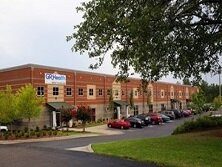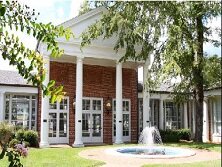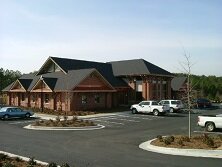History of the Georgia Regents Sickle Cell Center
Georgia Regents Health System has played an important role in the development of clinical programs and research in sickle cell disease. From the 1920-50’s, Dr. Virgil Sydenstricker, for whom a branch of the hospital building is named, had a strong interest in sickle cell disease. Dr. Titus H. J. Huisman (1959-95) led hemoglobin research and later the Comprehensive Sickle Cell Center. His laboratory discovered a large number of the approximately 700 known hemoglobin variants and enticed scientists and researchers from all parts of the world to come to Georgia Regents Health System. Under his direction, the Comprehensive Sickle Cell Center was born with funding for more than 15 years provided by the National Institutes of Health. Pictured here is the laboratory where Dr. Huisman worked for more than 30 years and which still serves as the Sickle Cell Center Laboratory today. In June of 2000 a dedication ceremony was held in memory of Dr. Huisman and the Laboratory was officially named "Titus H. J. Huisman Hemoglobinopathy Laboratory."
Drs. Virgil and Kathleen McKie joined Georgia Regents Health System in 1982 serving pediatric patients. They educate parents and children about the disease and provide care to patients living in rural Georgia. Drs. McKie also devote a large amount of time to training young medical students, interns, and residents. Teaching these young professionals ensures that their sickle cell patients will receive the best of medical care for many years to come.
Dr. Abdullah Kutlar, Director of the Sickle Cell Center, came to The Georgia Regents Medical Center in 1984. He worked in the Laboratory of the Sickle Cell Center for 6 years studying hemoglobinopathies and laboratory aspects of sickle cell disease. Dr. Kutlar became a member of the faculty in the Department of Medicine in 1992. Because of his experience as a scientist, researcher, and clinician in the field of hematology, particularly in the area of sickle cell disease, he was named Center Director in 1994. Dr. Kutlar also travels throughout Georgia to care for patients in rural areas and provides teaching and training for young medical professionals and scientists.
This rich heritage in sickle cell disease will continue to grow and enrich the lives of patients and families for years to come. The Georgia Regents Sickle Cell Center is committed to providing exceptional medical care and continued research in the field of sickle cell disease.





